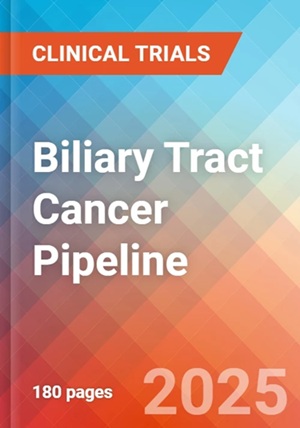Biliary Tract Cancer Pipeline Outlook: Key Companies and Breakthrough Therapies Shaping the Future Landscape

Biliary tract cancer (BTC) remains a formidable challenge in oncology, but recent advancements in research and the development of innovative therapies have sparked hope for patients and medical professionals alike. The "Biliary Tract Cancer Pipeline Insights 2025" report provides comprehensive details about over 80 companies and 80+ pipeline drugs, showcasing the landscape of promising therapies in the BTC space. This blog takes a closer look at the key developments shaping the future of biliary tract cancer treatment, with a special focus on emerging drugs and their potential to transform patient outcomes.
The BTC pipeline is evolving rapidly, with novel drugs progressing through various stages of development, from early preclinical research to later-stage clinical trials. The report offers a detailed breakdown of drug profiles, including:
Clinical and nonclinical stage products
Therapeutic assessment by product type, molecule type, and route of administration
Inactive pipeline products in the field
These insights are crucial for pharmaceutical companies, research institutes, and investors, helping them to understand the most promising therapies on the horizon.
One standout therapy in the pipeline for biliary tract cancer is Envafolimab, developed by Alphamab Oncology. Envafolimab is a PD-L1 single-domain antibody Fc fusion protein designed to offer significant advantages in safety, patient compliance, and cost-effectiveness. Envafolimab targets the PD-L1 protein, playing a crucial role in immune evasion by cancer cells, which makes it a promising agent in cancer immunotherapy. The unique design of Envafolimab as a single-domain antibody provides better tissue penetration and a stronger immune response. Unlike traditional monoclonal antibodies that require intravenous infusion, Envafolimab can be administered subcutaneously, offering patients greater convenience and reduced medical costs. Envafolimab is currently being evaluated in clinical trials for several cancer indications in China, the United States, and Japan, including biliary tract cancer. Encouragingly, Envafolimab has received Orphan Drug Designation (ODD) from the FDA for the treatment of advanced biliary tract cancer, signaling its potential to address unmet medical needs in this field.
In March 2020, Alphamab, 3D Medicines, and Simcere entered a three-way strategic collaboration for the development and commercialization of Envafolimab. As the original research party, Alphamab is responsible for production and quality, while 3D Medicines handles global clinical development and commercialization abroad, and Simcere is exclusively responsible for marketing and promoting the drug in mainland China.
With ongoing clinical trials and strategic collaborations underway, therapies like Envafolimab are positioning themselves to make a real difference in the lives of biliary tract cancer patients. The increasing number of pipeline drugs and innovative therapies, combined with a robust research landscape, offers optimism for better outcomes in the treatment of BTC.
Source: THE GLOBE AND MAIL